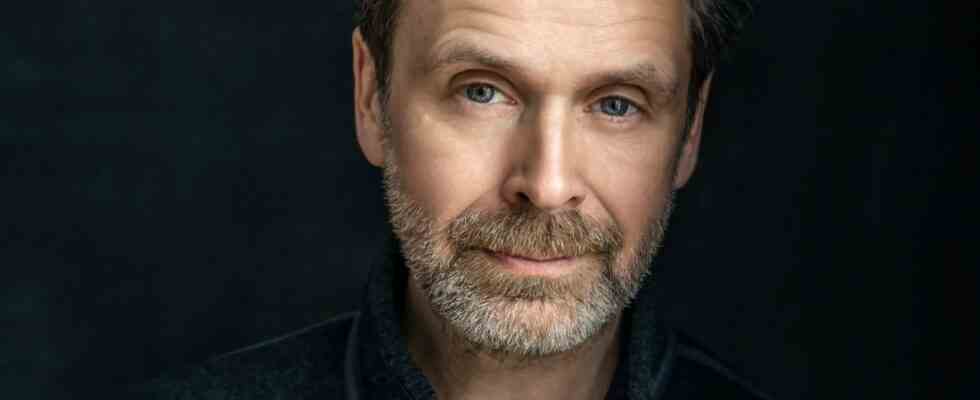A photograph is shown on the dust jacket of Matthias Matschke’s debut novel: A little boy with a cap and earflaps has a heavy cruciform wrench in his hand and is struggling to loosen the wheel nuts of a car, obviously a VW Beetle. He is being watched by a man crouching behind him, wearing a similar headgear and in whose half profile a cigarette can be seen in the corner of his mouth. According to the photo credits, it is a photograph from the author’s archive: “Matthias and Christian Matschke, 1974”.
The first-person narrator of the novel, by the name of Matthias Matschke, often looked at this photo in the course of his youth. But it is much later that he notices the cigarette. “My father smoked?” he asks himself: “How could I forget that?” A scene that seems unimportant, and yet there are many things that make this novel stand out. The attention to detail with which Matthias Matschke reinvents the universe of his childhood in “Falschgeld”. The subtlety with which memory and its reliability are questioned. And last but not least – the role of automobiles as identity-establishing objects. After all, we are in the middle of the old Federal Republic, not far from Rüsselsheim.
Matthias Matschke is known to television audiences as an actor in formats such as “Pastewka”, “Ladykracher” or the “Today Show”. However, Matschke also studied German, and nothing applies to “false money” less than the cliché of an actor who suddenly wants to write down his life. “Falschgeld” is an adolescence story that cleverly plays with particles of reality, in which the end of an epoch is implicitly told. “I am Matthias Matschke” – this sentence haunts as a leitmotif through the non-chronologically told chapters of the novel. And that is partly the truth and partly a lie: Matthias Matschke, the author, grew up like his novel Matthias in a village of 300 people in the lower Odenwald, about 20 kilometers south-east of Darmstadt. But even if you superimpose the life dates of the author and his character, it doesn’t fit, the author is three years older than his character. This non-congruence is crucial in terms of perspective and tone: it allows the author a semi-distance with his alter ego; a mixture of intimacy and indifference. Nothing in this book is nostalgically embellished, nothing is lamented, no one is settled.
Roman-Matthias’ father is the evangelical pastor of the village, his mother works at the post office in nearby Dieburg. The atmosphere of the village and the mood within the family are captured exactly and seem incredibly far removed from today’s conditions. Another century in another country. There are clear rules, structures, rituals. This confinement is ambivalent, because it is also a shelter, an almost snug nest that the old FRG was in its own way: desolate, prosperous, unexcited and rigid. In this environment, Matthias goes through an exemplary average development: childhood with a few injuries, humanistic high school in Darmstadt, first love and first disappointment, community service.
Matthias Matschke: counterfeit money. Novel. Hoffmann and Campe, Hamburg 2022. 253 pages, 24 euros.
(Photo: Hoffmann and Campe)
The black box, the great unknown in “False Money”, that’s Christian Matschke, the father. Not a family tyrant, but a man prone to unpredictable outbursts of anger and arguments, mostly over completely unimportant matters. Once he, a war refugee from Silesia, bursts out: the Polacks, he screams, have stolen his homeland. He ignores the objection that his homeland is where he lives now, and in this scene the trauma of an entire generation flashes through for a moment. A generation that is too young to have been guilty of National Socialism itself, but that has not found words for the guilt of their parents or for what happened to them.
It is no coincidence that “counterfeit money” ends in 1990, the year in which the GDR ex- and the old Federal Republic imploded. The End of Two States; the end of cuddly bliss. All of this is in the characters of the novel, Matthias Matschke, the author, never makes all of this explicit, but makes it clear in each of the short chapters. “Falschgeld”, which is clearly the result of an artistic achievement, is entertaining to read, like a lively illustrated sheet. Behind it is a reflective author who knows what it means to say goodbye.

